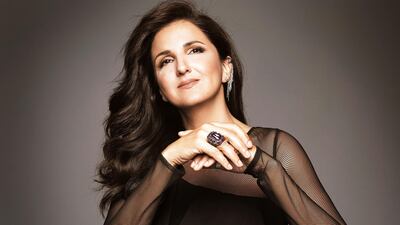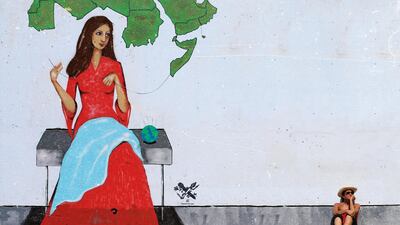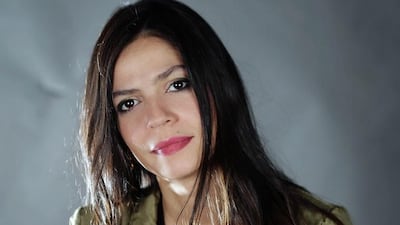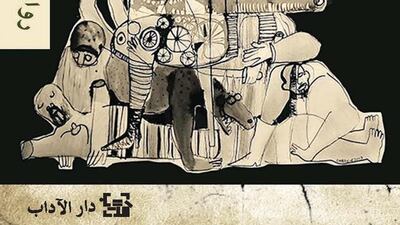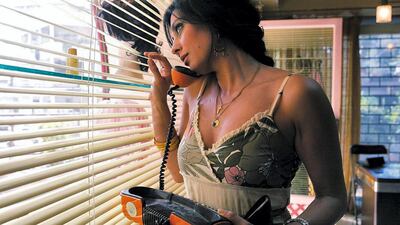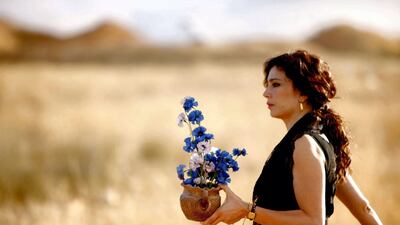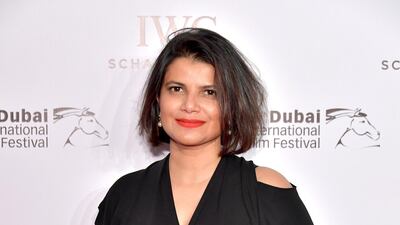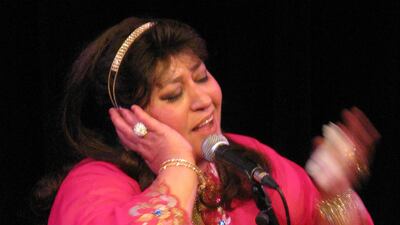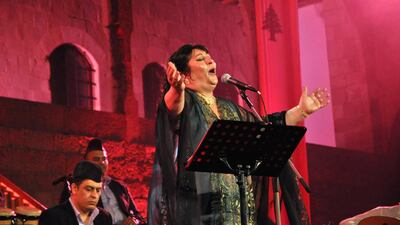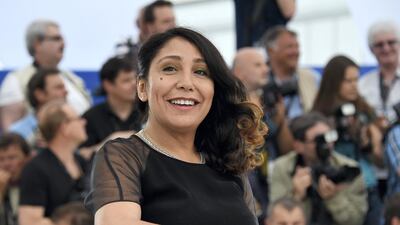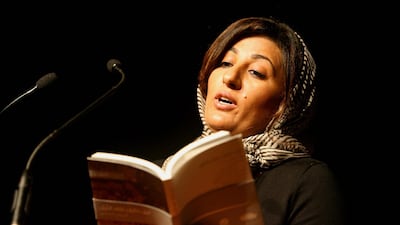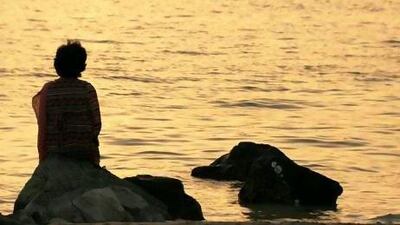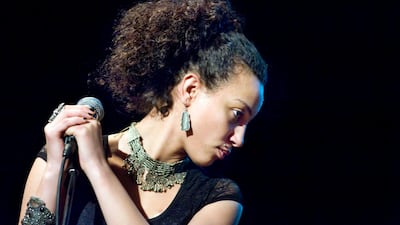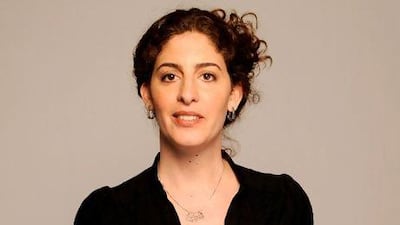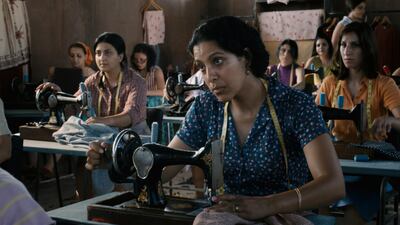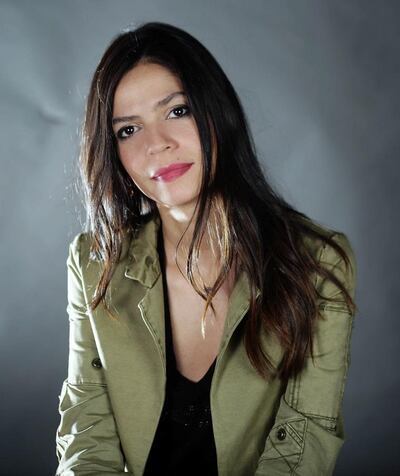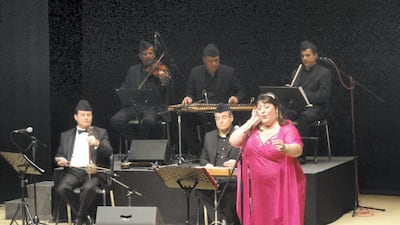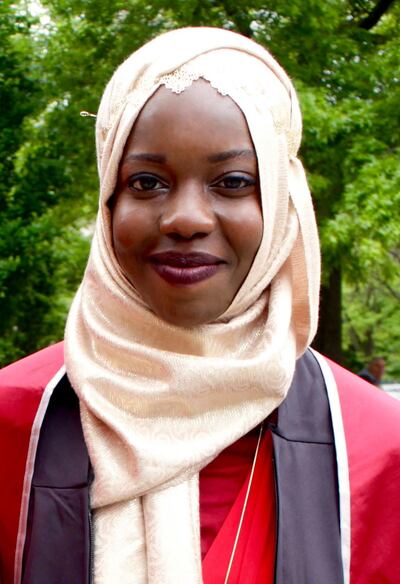From the music and film industry to poetry, here are 10 women who are working to shape the cultural scene in the Mena region...
Tania Saleh
If you are going to study the history of the Lebanese indie-music scene, you can’t go past the work of Tania Saleh. Ever since her 2002 self-titled debut, which is largely credited as helping to kick-start Lebanon’s vibrant scene, Saleh’s follow-up albums have all been marked by fierce lyricism and adventurous songwriting.
A singer and one of the few female lyricists in the Arabic music industry, Saleh's work is forward thinking and modern, while paying respect to the creative masters of the region. Her latest album, Intersection, is a fine distillation of her approach; electro tracks are infused with lyrics taken from poems by some of the finest Arabic writers of the 20th century, while the booklet contains street art that Saleh herself created across the Middle East. "It came from this realisation that what I was doing was actually writing about the Arab world and I was not the best person to talk about it," she says. "So I chose poets from the region that have tackled the problems better than me in the past century and whose work still resonates today."
__________________
Dima Wannous
Last week, acclaimed veteran Syrian novelist Khaled Khalifa told The National that the conflict gripping his homeland should result in a new generation of innovative authors. In that regard, Dima Wannous may be a welcome harbinger of things to come. The 35-year-old writer and journalist is one of the names currently circulating the industry on account of her novel The Frightened Ones making this year’s shortlist for the prestigious International Prize for Arabic Fiction, the winner of which will be announced in Abu Dhabi next month.
The Frightened Ones has received rave reviews thanks to its intricate novel-within-a-novel structure and taut prose. “The story is about fear itself,” she says. “It’s an examination on that emotion and about the fear of fear itself.”
If Wannous emerges victorious in Abu Dhabi, she will be the first solo female winner of the IPAF. The only woman to previously take the prize, Saudi author Raja Alem, shared her award with Moroccan novelist Mohammed Achaari.
__________________
Nadine Labaki
Nadine Labaki first emerged in the public eye in 1990, on long-running Lebanese talent show Studio El Fan. Labaki won a prize on the show for directing music videos, and it was in the music-video arena that she first achieved fame, or perhaps notoriety, when her video for Nancy Ajram's Akhasmak Ah sparked controversy in 2003, for what was perceived as explicit dancing. In 2006, Labaki's first feature, Caramel, a refreshingly non-political look at life in Beirut was released – Labaki directed and starred in the film having written it during a Cannes Film Festival residency programme the previous year. The film placed her on Variety's 10 Directors to Watch list at that year's Sundance Festival. Nabaki's second film, Where Do We Go Now?, proved Variety correct, picking up the People's Choice Award at Toronto and a Best Foreign Language Film nomination at that year's Critics' Choice Awards. Labaki is unusual among Arab filmmakers because she didn't train abroad, graduating from St Joseph University in Beirut. She is currently working on her third feature, Capernaum.
__________________
Shivani Pandya
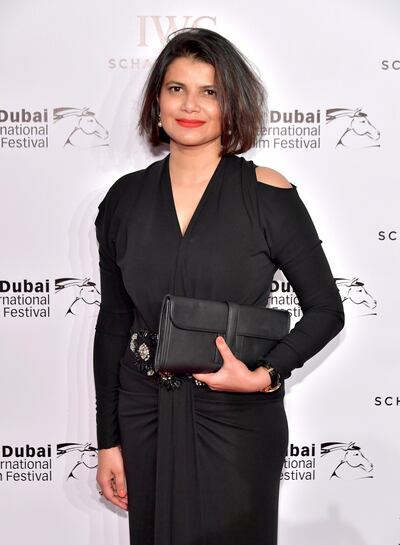
As director of the Dubai International Film Festival, Shivani Pandya holds one of the most powerful positions in the movie industry in the country, if not the entire Arab world. The festival is the biggest in the region and the go-to place for premieres of the latest in Arab cinema. Last December's 14th edition featured no fewer than 81 world premieres of films from the Middle East and North Africa among its 140-film programme. Originally from India, Pandya began her career in advertising, but soon moved into producing for adverts and TV. She moved to Dubai in 2001 as one of the first members of staff at the nascent Media City, and soon found herself responsible for planning the first Diff in 2004. Pandya has previously stated her desire to make Dubai one of the world's top three festivals. It may not be quite up there with Cannes yet, but it is making progress – in 2014, Condé Nast Traveller declared it one of the world's 10 Most Travel-Worthy Film Festivals.
__________________
Farida Mohammed
Farida Mohammed has been labelled as a pioneer for showcasing the beauty of ancient Iraqi music, but the veteran singer looks at her work as more about safeguarding an important Arabic artistic tradition. She is the leading purveyor of the Iraqi maqam, which is less a genre and more an artistic universe complete with its own architecture of melodic modes, indigenous instruments, vocal and instrumental performances.
The form of music originates from when Iraq was at the academic and cultural epicentre of the Arab world, during a time in ancient Islamic civilisation dating from the Abbasid period (eighth to 13th century) when Baghdad was the seat of the Islamic caliphate. With the music having receded from popularity during the past eight centuries – a demise that has been down to a mixture of ancient wars and modern-day repression – Mohammed has dedicated her career to reviving the art form, which in 2008 was listed for preservation by Unesco. “These are not songs to make people feel sad,” she told The National. “Yes, there is some loss, but the songs are a reminder of better times and, God willing, they will return to Iraq.”
__________________
__________________
Haifaa Al Mansour
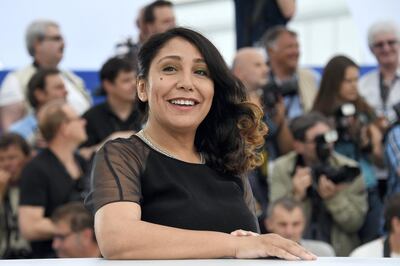
Haifaa Al Mansour was already an established short-filmmaker, having won prizes at festivals in Oman, the Netherlands and the UAE, when her debut feature, Wadjda, thrust her onto the global stage. The film was the first feature ever made entirely in Saudi Arabia and the first made by a female Saudi director. Like many of Al Mansour's preceding shorts, the film deals with women's rights in the kingdom – in this case, an 11-year old girl in Riyadh who dreams of owning a bike.
The film was entered as Saudi Arabia's nomination for the Best Foreign Language Film at the Oscars, and although it didn't make the final shortlist, Al Mansour's star was in the ascendant. Last year, she directed her Hollywood debut, Mary Shelley, starring Elle Fanning and Maisie Williams, which debuted at Toronto and also screened at Diff in December. She is currently working on a second Hollywood feature, Nappily Ever After, based on Trisha R Thomas's comic novel of the same name.
__________________
Emtithal Mahmoud
The UAE will have a poetry champion in its midst this weekend. The young, brilliant Emtithal Mahmoud will make an appearance at the Emirates Airline Festival of Literature to discuss her work, which blends her creativity with advocacy. Born in Darfur in South Sudan, Mahmoud moved to Yemen as a baby, before moving on to the United States, where she developed her love for spoken-word poetry. It all came together in 2015 with her startling work Mama, which won her the World Poetry Slam Championship. With her dulcet flow and words praising the resilience of African women and refugees, Mahmoud has spent the past year working with the United Nations High Commissioner for Refugees in Uganda and travelling to Greece to speak with Syrian refugees who survived the dangerous sea crossing from Turkey. When asked if her own personal experience of escaping conflict zones inspired her writing, Mahmoud describes it as having an inverse effect. "I write to process everything that happened," she says. "Being a refugee has not made me more creative, but being more comfortable with being a refugee."
__________________
Nujoom Al Ghanem
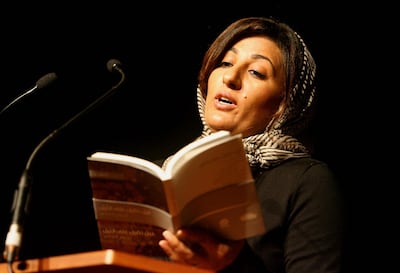
Poet and filmmaker Nujoom Al Ghanem is possibly the UAE's most prolific director, with no less than seven movies, including the Diff 2017 Muhr Emirati Award winner Sharp Tools, to her name since her debut, 1999's documentary short Between Two Banks. Al Ghanem tends to bring a distinctly Emirati flavour to her films – her 2014 documentary Nearby Sky told the story of Fatima Al Hameli, the first female Emirati camel owner to enter into the UAE's traditional camel beauty contest circuit.
Her 2017 Diff award-winner, meanwhile, follows the life and work of influential Emirati artist Hassan Sharif, who sadly died while the film was shooting.
__________________
Maryam Saleh
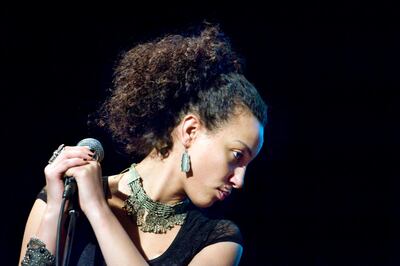
The fact that Maryam Saleh’s career continues to grow and expand is a welcome shot in the arm to the region’s entertainment industry. On first listen, her voice can be disorienting, with a style that prefers to peck at the melody as opposed to singing fully on key. The overall result is a sound that is mysterious and otherworldly, which made her a perfect foil over eclectic beats ranging from trip-hop (as part of Halwella, a collaboration with Lebanese producer Zeid Hamdan) and her new experimental rock group Lekhfa.
“I wanted other explanations for what makes a singer good and so I spent years working on more stripped-down and abstract interpretations of melodies and I worked on getting rid of a lot of rules,” she says. “I eventually distilled it down to what is the most powerful element into what makes a singer good, which is the feeling. My mother’s family think I’m the odd, eccentric one, that there is no concept behind how I sing and that I need more training. They don’t understand that this is how I chose to train.”
__________________
Annemarie Jacir
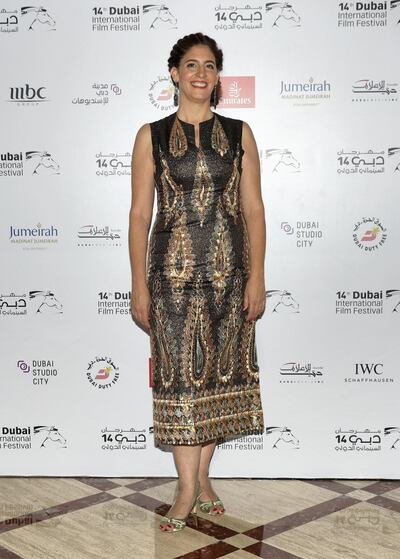
Annemarie Jacir made her debut in the movie industry as a production assistant on 1997 TV movie Hollywood Commandos, which tells the story of the work of filmmakers during the Second World War. She directed her first short, A Post Oslo History, in 2001, and two years later, her short, Like Twenty Impossibles, became the first Arab film to be an official selection at the Cannes Film Festival. The film went on to win at more than a dozen awards at festivals internationally, and was named as one of the 10 best short films of the year by Film Comment magazine. She released her first feature, Salt of This Sea, in 2008, receiving Palestine's nomination for the Best Foreign Language Film Oscar. Jacir has since released two further features, picking up awards from Dubai to Berlin and two further Palestinian Oscar nods for When I Saw You and Wajib, which debuted at Diff last December. Jacir is also an ardent supporter of Palestinian cinema, having founded the Dreams of a Nation cinema project, taught at Bethlehem University and in refugee camps, and organised the largest travelling film festival in Palestine.
__________________
Read more:
Barbie releases new dolls to mark International Women's Day
International Women's Day: parity is expected to take 200 years. That's not good enough
__________________
